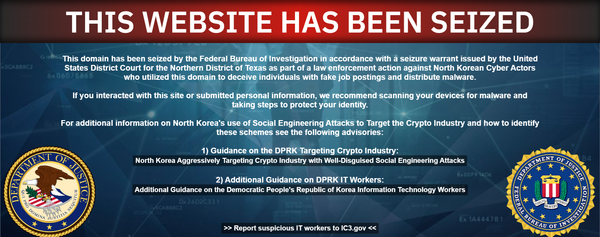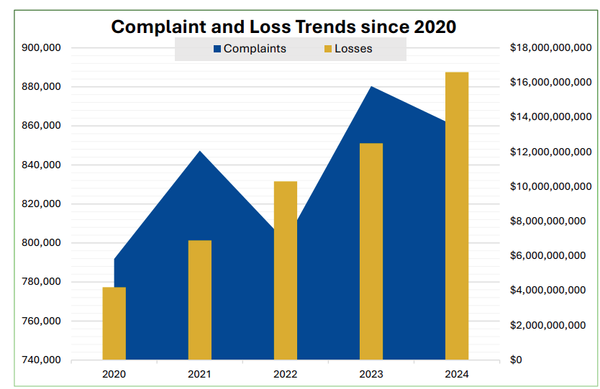US Supreme Court to Decide If TikTok Is a Big Enough National Security Risk to Justify a Ban
Pro-Ukraine group destroyed Russian ISP, Biden admin points to Silk Typhoon for Treasury hack ahead of new EO, US to get $6.5m from Silk Road forfeiture, Ivanti releases severe flaw patches, Attackers could disable DNA sequencer devices, Hackers stole Green Bay Packers' customers data, much more


As a reminder, on Tuesdays and Thursdays, our premium subscribers have full access to our original content, expansive summaries, intelligently clustered related articles, our best and worst things of the day, and our customary closing thoughts.
So, please consider upgrading your subscription today to access this content along with Metacurity's complete archives.
Summary of the most critical infosec developments you should know today
- Russian internet provider Nodex reported that its network had been ruined in a cyberattack, which it suspects originated from Ukraine, with a pro-Ukraine activist group, Ukrainian Cyber Alliance, taking credit for the incident.
- Sources say the Biden administration is racing to issue an executive order to strengthen US cybersecurity during its dwindling days in office.
- Chief US District Judge Richard Seeborg in the Northern District Court on December 30 denied a motion to block the forfeiture of 69,370 Bitcoin tied to the infamous Silk Road marketplace on December 30, clearing the Department of Justice to sell the $6.5 billion assets.
- IT software provider Ivanti released patches for its Connect Secure SSL VPN appliances to address two memory corruption vulnerabilities, one of which has already been exploited in the wild as a zero-day to compromise devices.
- Researchers at Eclypsium report that BIOS/UEFI vulnerabilities in the iSeq 100 DNA sequencer from US biotechnology company Illumina could let attackers disable devices for detecting illnesses and developing vaccines.
- Security and privacy researcher Wladimir Palant revealed that developers are flagrantly violating Google's Chrome browser policies against search manipulating techniques in the Chrome Web store in hundreds of extensions currently available for download from Google.
- American football team Green Bay Packers says cybercriminals stole the credit card data of over 8,500 customers after hacking its official Pro Shop online retail store in a September breach.
- Venture capital firm YL Ventures said that Israeli cybersecurity firms raised $4 billion in 2024, more than double that of 2023, led by firms seeking to protect the cloud and a surge in artificial intelligence.
Supreme Court to Decide If TikTok Is a Big Enough National Security Risk to Justify a Ban
Advocates for and against a law that essentially bans TikTok in the US will weigh in tomorrow before the Supreme Court. At stake in the high-profile fight is whether TikTok, fundamentally controlled by China, is enough of a national security risk to outweigh the First Amendment harms such a ban would inflict.
In April 2024, the US Congress passed the Protecting Americans from Foreign Adversary Controlled Applications Act, which conditionally banned the hugely popular video-sharing service TikTok if its Chinese parent company, ByteDance Ltd., fails to divest its ownership in the US version of the app.
With the ban slated to go into effect on January 19 and following a December 6 decision by the US Court of Appeals for the District of Columbia Circuit upholding the law, on December 18, the Supreme Court agreed to take up an appeal by TikTok that challenges the law on First Amendment grounds. Since then, interested parties have filed briefs laying out their support for or objections to the law, with oral arguments slated before the Court on January 10.
The arguments favoring the law advanced by Congress and the Biden administration fall mainly along the lines of protecting US national security. China, the legislation's advocates argue, is amassing sensitive data on Americans that can be used for covert and malign purposes such as espionage and, to a lesser but significant degree, damaging influence operations. Beijing could weaponize these malicious tools in China's arsenal during a national crisis, or so the US government's argument goes.
TikTok and a host of free speech advocates, including some lawmakers who opposed the legislation, emphasize the propaganda-quashing rationale they say is the true engine behind the law, arguing that the legislation is a blatant and broad violation of the First Amendment right to free speech. The government, they say, can only restrict a communications platform like TikTok when there is credible evidence of ongoing or imminent harm.
Moreover, they argue that even if China's behind-the-scenes scheme for TikTok does represent a national security threat, Congress failed to investigate less intrusive options that might provide greater protection to the nation's history of vigorous protection of the First Amendment right to free speech.
In their brief before the Supreme Court, the American Civil Liberties Union, the Electronic Frontier Foundation, the Center for Democracy and Technology, the Freedom of the Press Foundation, Public Knowledge, and other high-profile free speech advocates wrote that they "urge the Court to see the Act for what it is: a sweeping ban on free expression that triggers and fails the most exacting scrutiny under the First Amendment."




